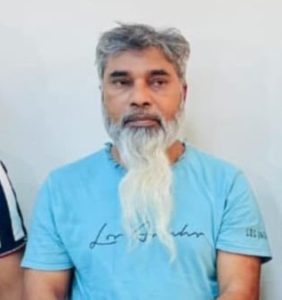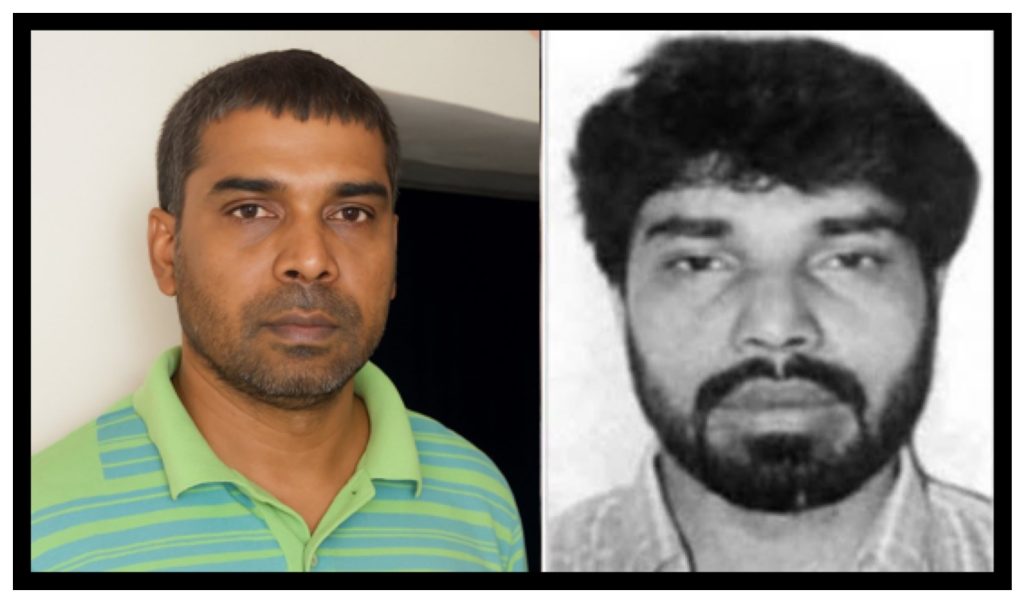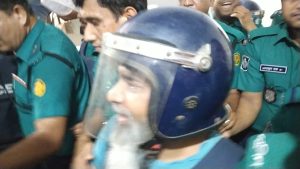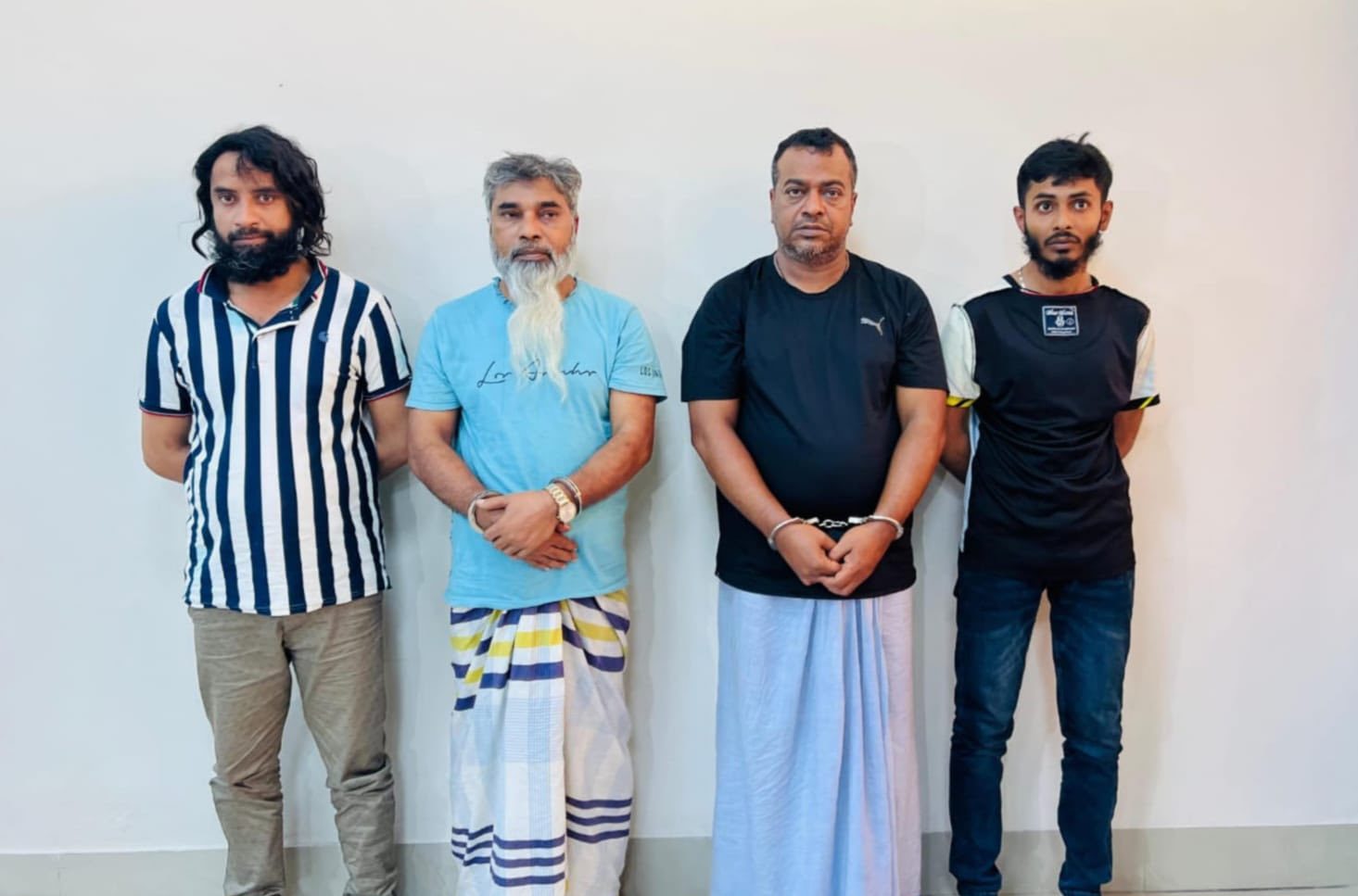The way a nation handles its most wanted criminals often reveals more about its political and institutional character than any manifesto or public speech. When top underworld figures travel across borders, disappear, and reappear with impunity, it lays bare a deeper collusion– between the state, silent political consent, and forces that operate in the shadows.
The recent arrests of Subrata Bain and Molla Masud, two of Bangladesh’s most notorious criminals, offer a glimpse behind the curtains of such a theatre within a theatre.
According to The Times of Bangladesh, Subrata Bain topped a 2001 list of 23 most-wanted criminals published by the BNP-Jamaat coalition government, which offered bounties for their capture.
In the years that followed, several on the list died in so-called “crossfire” incidents involving the police or Rapid Action Battalion (RAB).

Yet seven survived: Subrata Bain, Molla Masud, Tanvirul Islam Joy, Bikash Biswas, Prokash Biswas, Joseph, and ‘Leather’ Liton.
Their survival, it appears, was no accident.
These men thrived because the political and security apparatus needed them. Whether in Kolkata’s Kalighat, Murshidabad, a lavish mansion in Dhaka, or even in faraway France, they found safe havens– because they held value.
One was under a minister’s protection, another reportedly operated on covert missions for foreign and domestic intelligence, while some allegedly maintained satellite phone contact with distant political patrons.
The question then arises: Who protected them? Who ensured their free movement across borders? Who provided them the impunity to live like untouchable ‘VIPs’?
Former Inspector General of Police Abdul Kaiyum admitted that some of those listed criminals remain active. Current IGP Baharul Alam has hinted that if any law enforcers or politicians are found assisting them, action will follow.
But these statements barely scratch the surface of a hidden network of power and protection.
Subrata Bain is not just a cold-blooded killer—he is reportedly a skilled operator of the underworld. Intelligence sources claim India’s RAW once handed him target photographs, and his bullets are believed to have shifted political calculations. His actions, they say, have altered the rhythm of international power games.
One chilling report describes a closed-door meeting involving a former home minister, military officer, police intelligence chief, and a foreign delegate. There, Subrata was allegedly offered a “special mission”– a hit job in London. The reward? Immense wealth and safe asylum in Canada.

The entanglement runs deeper. During the BNP-Jamaat regime, a then-powerful state minister reportedly helped Subrata quietly leave the country.
Though Bikash Biswas was born in Bagerhat, he quickly rose to control Dhaka’s criminal scene under the patronage of an Awami League presidium member. In 2018, he left the country with the help of a minister and is now thought to operate from France.
Molla Masud, once involved in tender-related extortion in Old Dhaka under BNP ties, later became close to several Awami League leaders. Bikash fled to France, Joseph received a presidential pardon, Joy underwent “training” in India’s Madhya Pradesh, and Liton, tangled in narcotics and arms trafficking, reportedly fell into the orbit of Indian intelligence.
As time moves on, the names and faces of these criminals may change, but their crimes– and their powerful backers– remain. The state is sometimes their enemy, at other times their sponsor. From this contradiction emerges a shadow state, where figures like Subrata Bain, legally branded criminals, become “assets” to both political actors and the machinery of the state.

But at what cost?
When Subrata shot a student leader in Dhaka’s Hatirjheel area, he wasn’t just committing murder– he became the embodiment of the state’s moral decay. When he orchestrated operations from inside prison, he exposed the collapse of our justice system.
In a nation where impunity has long been institutionalised, people like Subrata Bain will always find a way back. They will reemerge, receiving protection, training, and missions like characters from a Hollywood thriller.
When a major crime shocks the nation, the state will call it an “isolated incident.” But none of this is isolated. These are, in truth, the documented failures of a 54-year-old independent nation– failures rooted in the rot of its politics.


